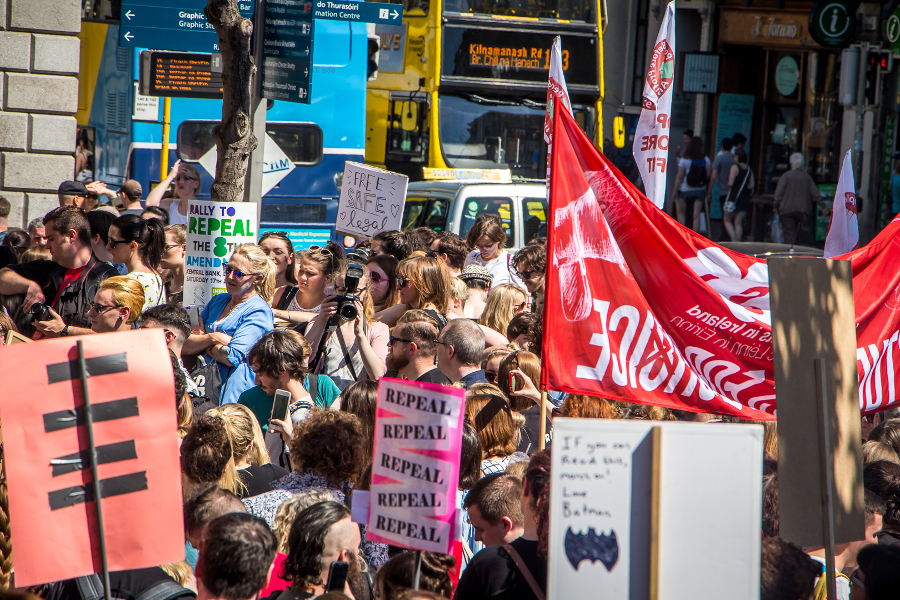Today it was confirmed, amid an announcement of a general timeline for several referendums throughout 2018 and 2019, that the long-awaited referendum on the eighth amendment will be held in either May or June of next year.
The news is something of a mixed bag. Confirmation that the referendum will be held in isolation comes as a relief, as appending the question with other votes would detract focus from the crucial and sensitive issue that is the eighth amendment. Given that pro-choice campaigners have long been accusing the government of employing delay tactics on the issue of abortion, it’s also good to see that, at the very least, resolution on the matter will come in the first half of the year.
However, the date of the pivotal vote recently became the subject of controversy among young people and pro-choice activists, who expressed worries about the possibility of holding the referendum during the summer months. At a pro-choice rally in June, Ailbhe Smith, convenor of the Coalition to Repeal the Eighth, demanded that the date be set for the spring, preferably in February or March.
It’s also good to see that, at the very least, resolution on the matter will come in the first half of the year
Fears that holding the referendum any later would suppress the student voice stemmed largely from the fact that many young people choose to spend summers abroad, where they aren’t registered to vote. With voting by post a cumbersome process, it is easy to see how students, who have fought hard to have this referendum called, could lose significant numbers at the polling booths if the dates don’t align.
While June is more likely to see young people travelling or on J1s, many students also have hectic timetables in May. In 2015, the Union of Students Ireland (USI) called for the referendum on marriage equality to be brought forward to April instead of being held in May, citing exams as a concern.
In 2015, the Union of Students Ireland (USI) called for the referendum on marriage equality to be brought forward to April instead of being held in May, citing exams as a concern.
Additionally, Pope Francis is expected to visit Ireland in August 2018, an occasion which has been flagged as having potential to influence the outcome of the vote. As the first planned papal visit since 1979, the lead-up may see a resurgence of religiosity that could colour the atmosphere of the campaign. Whether this would have a notable impact on the result of the referendum, however, is contestable.
The obstacles shored up by a summer date aren’t limited to the day of the referendum itself. In both May and June, students preparing for exams will have less time to canvass, rally and make their voices heard in advance of the vote. While young people saw their desired outcome in 2015 in spite of the May date, the referendum to repeal the eighth is arguably a far more controversial issue, hinging on deeply-rooted cultural contentions. Young people will be required to exhaust all of their resources in order to lead a successful campaign, something they will struggle to do if they are also juggling exam preparation or, worse, abroad.







